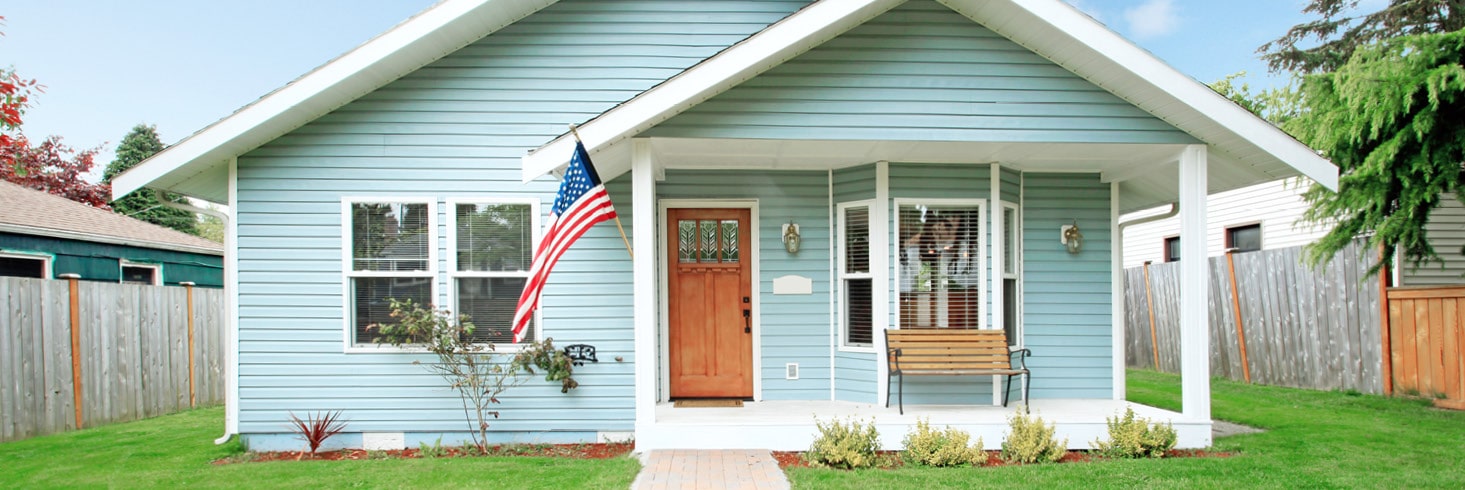
Why Now is the Perfect Time to Buy a Starter Home in Grand Rapids
A Starter Home is the Perfect First Step to Home Ownership
A starter home is an excellent stepping stone for first-time buyers, offering an affordable way to enter the housing market and build financial stability. It’s important to remember that your first home doesn’t need to be your “forever” home. Many buyers start small, using their initial property as a foundation to build equity, which can later be leveraged to upgrade to a larger or more ideal home.
By purchasing a starter home, buyers can begin building wealth and experience the benefits of home ownership without the long-term commitment of a dream home, all while gaining a foothold in a competitive market. Plus, as the home’s value appreciates over time, the equity gained can be used to help secure a future, more significant investment when the time is right.
What is a Starter Home?
Think of a starter home as the place where you’ll begin your life as a home owner, not as the house you’re going to live in for the rest of your life. Abandon your dream home checklist and instead focus on finding a more affordable, modest-sized property that will allow you to enter the housing market without the overwhelming financial burden.
Despite common misconceptions, starter homes don’t have to be run-down or in need of major renovations. Many are well-maintained and move-in ready, offering a comfortable and practical living space. When you’re not thinking about your “forever home” – one big part of the equation is the location. It might not be walking distance to a Whole Foods or cute coffee shop, but for a few miles further down the road you could save big on the purchase price.
While starter homes may be smaller or more basic than long-term homes, they can still provide quality features, good locations, and the potential for future growth without the hefty price tag often associated with larger or newer properties.
Home Buying Trends for Starter Homes Over the Years
Home sizes have evolved significantly over the years, reflecting changing trends in what buyers seek. In the 1960s, the median square footage of a single-family home was around 1,500 square feet. This modest size was typical, even for families, as larger homes were often considered a luxury reserved for the wealthy. Fast forward to the early 2000s, and homes grew considerably, with the median size jumping to 2,1000 square feet between the years of 2000 and 2004. Sizes expanded further to 2,200 square feet for homes built between 2005 and 2009.
These days, folks seem to be overlooking the beauty of a smaller home to get them started and instead opt for houses with more space. But for buyers on a budget, the starter home route isn’t one that should be overlooked.
The Appeal of Starter Homes in Grand Rapids
With the median listing price of Grand Rapids homes for sale being $320,000 (as of fall 2024), purchasing a home might feel out of reach to many first-time home buyers. Instead of giving up on the idea of home ownership completely, savvy would-be home buyers are opting for purchasing a smaller, starter home instead. This allows them to get into the real estate game and start building wealth.
Financial Benefits of a Smaller Home
While starter homes are great because they allow for a more minimalistic approach to home ownership, the financial benefits they offer are undeniable, including:
Lower Property Taxes
Since property taxes are based on the assessed value of the home, smaller homes generally carry a lower value, resulting in reduced tax payments. This can save home owners hundreds or even thousands of dollars per year compared to owning a larger property.
Proven Tax Benefits
Smaller homes still allow home owners to take advantage of tax benefits such as mortgage interest deductions. Even with a lower mortgage, home owners may qualify for these deductions, making smaller homes just as financially beneficial at tax time.
Reduced Yard Upkeep
Starter homes often come with smaller yards, which reduce the time, effort, and money needed for lawn care, gardening, and other outdoor maintenance. Less yard to mow and water, and less flower beds to mulch and maintain.
More Efficient Utility Costs
Heating, cooling, and powering a smaller space is more energy-efficient, which leads to lower utility bills. Smaller homes often require less electricity, water, and gas to maintain a comfortable environment, making energy costs more manageable.
Lower Insurance Premiums
With a smaller home, homeowners typically pay less for home owners insurance. Insuring a smaller property and fewer belongings reduces the overall premium cost, creating long-term savings.
Lower Maintenance Costs
It should be noted that if your starter home is on the older side, it might be more prone to upkeep issues — but, the smaller the home, the easier the repair! Think about it: smaller roofs, fewer windows, and less flooring all translate to less upkeep over the years. This also applies to interior maintenance, such as lower costs for cleaning and regular upkeep, like repainting or replacing appliances.
Greater Financial Flexibility
With the money saved on taxes, utilities, and maintenance, homeowners of smaller properties often have more financial flexibility. They can use the extra funds for other investments, savings, home improvements, or experiences like travel.
Work with Treadstone to Secure Your Starter Home
At Treadstone, we specialize in helping first-time home buyers navigate the mortgage process and secure their ideal starter home. Our team of experienced professionals understands the unique challenges and opportunities that come with buying your first property, and we’re here to guide you every step of the way.
With new starter homes hitting the market every week in the greater Grand Rapids area, now is the perfect time to take the first step toward home ownership. Let Treadstone’s expertise in first-time homebuyer mortgages help you find the financing solution that fits your needs and puts you on the path to building equity and financial stability.
FAQs
Do people still buy starter homes?
Although trends point to buyers gravitating toward homes with more square footage, plenty of people still buy starter homes as a practical entry point into the housing market, especially in competitive areas like Grand Rapids. Despite changing market trends, starter homes remain a viable choice for many seeking to establish their financial foundation.
Why is it better to have a smaller house?
Having a smaller house offers several advantages, including lower maintenance costs and reduced utility expenses, making it easier to manage both financially and logistically. Smaller homes often require less time for upkeep, allowing home owners to focus on enjoying their living space rather than spending hours on cleaning and repairs. Plus, minimalism — it’s all the rage.
Is Grand Rapids a cheap place to live?
Grand Rapids is generally considered an affordable place to live compared to many other U.S. cities, particularly in terms of housing costs. The cost of living is lower than the national average, making it accessible for various income levels, especially for first-time home buyers seeking starter homes.
Your first home does not need to be your forever home

